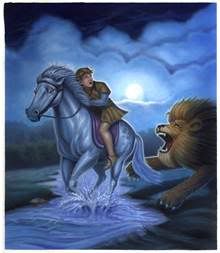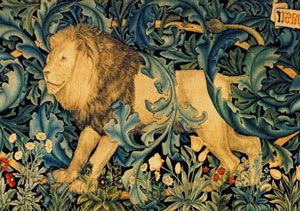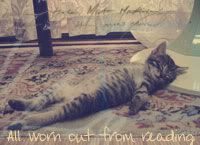Counting the Cost
 When I was a child I often had toothache, and I knew that if I went to my mother she would give me something which would deaden the pain for that night and let me get to sleep. But I did not go to my mother--at least, not till the pain became very bad. And the reason I did not go was this. I did not doubt she would give me the aspirin; but I knew she would also do something else. I knew she would take me to the dentist next morning. I could not get what I wanted out of her without getting something more, which I did not want. I wanted immediate relief from pain: but I could not get it without having my teeth set permanently right. And I knew those dentists: I knew they started fiddling about with all sorts of other teeth which had not yet begun to ache. They would not let sleeping dogs lie, if you gave them an inch they took an ell.
When I was a child I often had toothache, and I knew that if I went to my mother she would give me something which would deaden the pain for that night and let me get to sleep. But I did not go to my mother--at least, not till the pain became very bad. And the reason I did not go was this. I did not doubt she would give me the aspirin; but I knew she would also do something else. I knew she would take me to the dentist next morning. I could not get what I wanted out of her without getting something more, which I did not want. I wanted immediate relief from pain: but I could not get it without having my teeth set permanently right. And I knew those dentists: I knew they started fiddling about with all sorts of other teeth which had not yet begun to ache. They would not let sleeping dogs lie, if you gave them an inch they took an ell.Now, if I may put it that way, Our Lord is like the dentists. If you give Him an inch, He will take an ell. Dozens of people go to Him to be cured of some one particular sin which they are ashamed of or which is obviously spoiling daily life. Well, He will cure it all right: but He will not stop there. That may be all you asked; but if once you call Him in, He will give you the full treatment.
~C.S. Lewis, Mere Christianity, Chapter 9: Counting the Cost (1952)
_______________________
On this day:
1954 Lewis delivers his Inaugural Lecture, "De Descriptione Temporum," at Cambridge University.



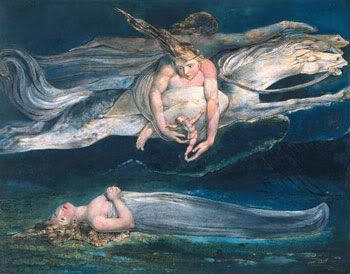



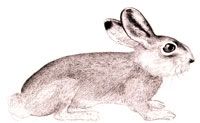 Woo us with whinny, tongue, tail, song, or look;
Woo us with whinny, tongue, tail, song, or look;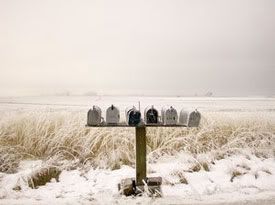
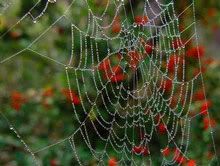



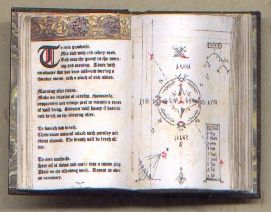
 It was equally clear that they were not happy with their old partners...You mustn't, by the way, imagine that A. was the sort of man who nonchalantly threw a wife away like the peel of an orange he'd sucked dry. Her suicide was a terrible shock to him. We all knew this, for he told us so himself. 'But what could I do?' he said. 'A man has a right to happiness. I had to take my one chance when it came.'
It was equally clear that they were not happy with their old partners...You mustn't, by the way, imagine that A. was the sort of man who nonchalantly threw a wife away like the peel of an orange he'd sucked dry. Her suicide was a terrible shock to him. We all knew this, for he told us so himself. 'But what could I do?' he said. 'A man has a right to happiness. I had to take my one chance when it came.'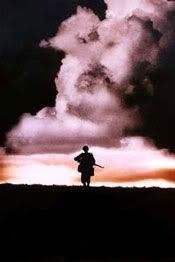

 "Then no one can ever reach them?"
"Then no one can ever reach them?" I know that there are such things as dreams; I know that I had eaten an indigestible dinner; I know that a man of my reading might be expected to dream of dragons. But while in the nightmare I could not have fitted in my waking experience. The waking world is judged more real because it can thus contain the dreaming world; the dreaming world is judged less real because it cannot contain the waking one. For the same reason I am certain that in passing from the scientific points of view to the theological, I have passed from dream to waking. Christian theology can fit in science, art, morality, and the sub-Christian religions. The scientific point of view cannot fit in any of these things, not even science itself. I believe in Christianity as I believe that the Sun has risen, not only because I see it, but because by it I see everything else.
I know that there are such things as dreams; I know that I had eaten an indigestible dinner; I know that a man of my reading might be expected to dream of dragons. But while in the nightmare I could not have fitted in my waking experience. The waking world is judged more real because it can thus contain the dreaming world; the dreaming world is judged less real because it cannot contain the waking one. For the same reason I am certain that in passing from the scientific points of view to the theological, I have passed from dream to waking. Christian theology can fit in science, art, morality, and the sub-Christian religions. The scientific point of view cannot fit in any of these things, not even science itself. I believe in Christianity as I believe that the Sun has risen, not only because I see it, but because by it I see everything else.

 I was beginning to think in Greek. That is the great Rubicon to cross in learning any language. Those in whom the Greek word lives only while they are hunting for it in the lexicon, and who then substitute the English word for it, are not reading the Greek at all; they are only solving a puzzle. The very formula, "
I was beginning to think in Greek. That is the great Rubicon to cross in learning any language. Those in whom the Greek word lives only while they are hunting for it in the lexicon, and who then substitute the English word for it, are not reading the Greek at all; they are only solving a puzzle. The very formula, "


